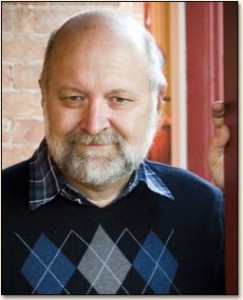Did you every have one of those stories that you know “missed it by that much”? I did. While there were some obvious fixes I knew I needed (like beefing up my descriptions), there was a fundamental flaw in the story that I couldn’t get my hands around. The story was sick and needed help. So, I took my baby to a professional.
Let me back up for a second, the story I’m talking about is my trunk novel. I’ve been picking at it for far too long. The first draft was well over 300,000 words. I know. I know. So, I broke it into three books. The problem was that the first book’s story arc was high on the Character quotient of Orson Scott Card’s MICE scale. For those who don’t know, I’m going to vastly oversimplify this. Card broke stories down to four archetypes – Milieu (setting), Issue, Character, and Event. A character story is mostly concerned with the character’s internal journey. So, the book ended when my main character transitioned from spoiled, self-centered twit to taking responsibility for the greater community, and before the promis ed big battle. A lot of the comments I received was that “nothing happened” in the story. So, books one and two became book 1. But I still had what I called a “pacing” problem. I didn’t know how to fix it. Hence, the trip to the book doctor.
ed big battle. A lot of the comments I received was that “nothing happened” in the story. So, books one and two became book 1. But I still had what I called a “pacing” problem. I didn’t know how to fix it. Hence, the trip to the book doctor.
The book doctor of choice and the stated course of therapy? David Farland’s Novel Rewriting Seminar. Dave is a New York Times Bestselling writer who has been translated into many languages and trained a number of #1 New York Times bestsellers, like Brandon Mull, Brandon Sanderson, and Stephenie Meyer. His latest novel, NIGHTINGALE, has won eight awards. So, the ability to hear him speak, much less take a class from him, is an amazing opportunity.
This seminar focuses on editing. In order to attend, you have to submit a sample to Dave and be accepted. You’re committing to a lot of homework, both before and during the workshop. We had a reading list which ensured all participants were starting with the same base knowledge.
All participants send in the first 100 pages and a synopsis of their stories. Part of the pre-seminar homework is to read the first 20 pages and synopsis of the other workshop stories. Getting to read and critique other stories, when you do so honestly, is a learning experience. What do I mean by “critiquing honestly”? I mean not cutting down a story just to cut it down. Your plan should always be to help the writer improve the story. realizing that your comments are just your opinion and you’re not any smarter or better than any other writer. Use critiquing as a way to help someone, but also as a means of seeing what you are doing that might be hurting your own writing.
The work doesn’t end when you get to the workshop. This isn’t a seminar where you can sit back and zone out. Each day, we went over two or more of the workshop stories, discussed story structure and elements, and were given homework that applied the topics discussed. We each left with 10 other perspectives on our story. Another fabulous excercise we did was disecting the story-telling elements in The Hunger Games movie. Many of the workshop participants would go out to lunch or dinner together. We built a community there.
Each participant meets with Dave to go over his comments on the first 100 pages of your novel. I have to say the time spent with Dave was worth far more than the price of admission. Not only is he a genuinely wonderful person, but he has so much insight and experience over the entire entertainment industry. I could have spent hours talking to him about everything from game design to movie making to publishing, and barely dipped my toes in the well of information and experience that he has. Dave pointed out some of the things I knew needed work – my descriptions of places and people were thin. But he also articulated the bigger problem I was having, and a way to address it.
What was the best thing about the workshop? That’s a hard question. The people I met there are wonderful. The knowledge I gained was invaluable. But, I have to say the best thing about the workshop was leaving knowing what I had to do, and that I could accomplish it.
Dave has a workshop for whereever you are in your writing career. He has a host of new writing classes scheduled for 2013 available at www.davidfarland.com/writing workshops. These range from his new Short Fiction Master’s Class, to his Million-Dollar Outlines, Novel Revision class, and Fiction Mastery Class. While there is some overlap between the seminars, each focuses on a different aspect of the craft of writing. I can’t wait to attend some of the other ones.
As if the workshops weren’t cool enough, if you go to to any of his workshops and mention that “I heard about it through the Fictorians,” Dave will buy you a free dinner with him (if time allows), or he’ll give you $20.
If you have the choice between dinner with Dave or $20, take the dinner. Every time.
So please check out his workshops here.


